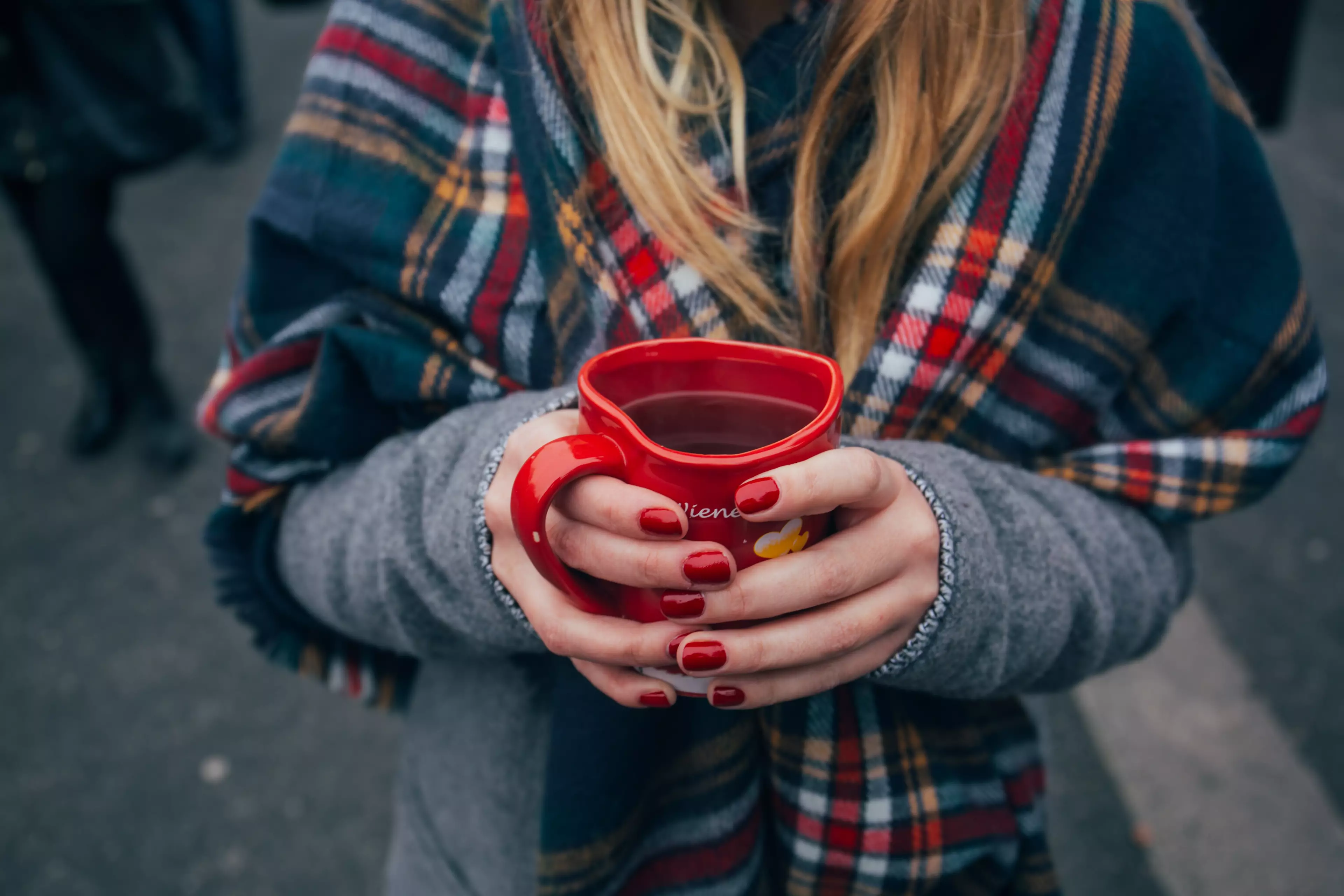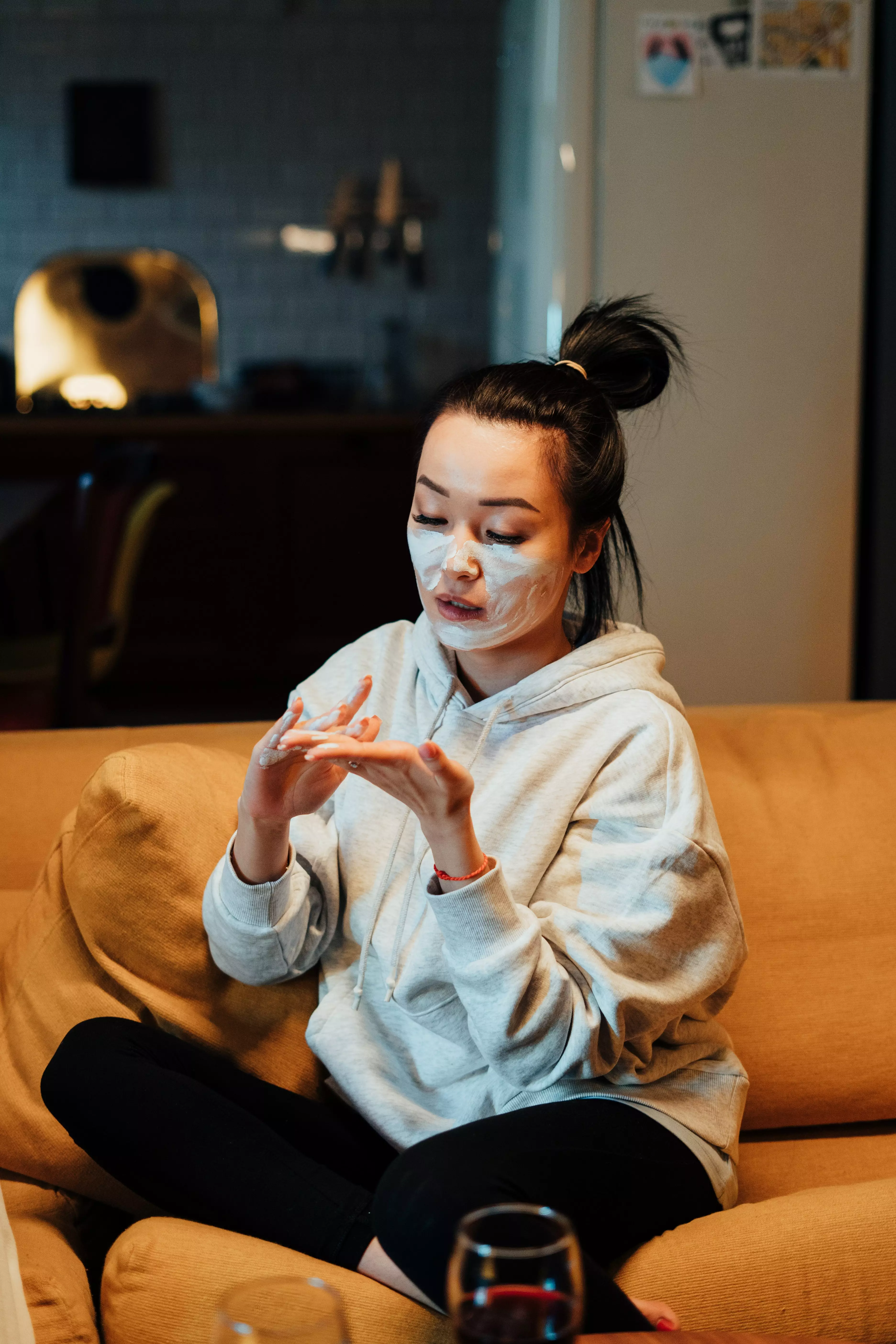
The festive season always seems to go hand-hand with some sort of skincare dilemma - whether it's a breakout, redness or a bout of puffy skin.
Could it be the requisite festive diet of chocolate, pigs-in-blankets and all the beige buffet food? Or could all those boozy nights be making us a little lazy with our skincare regime?
2020 has been hard enough, so this year we're making an extra effort the dreaded Christmas Face - and the good news is, it doesn't mean you have to cut out delicious festive food.

What causes it?
To find out exactly what causes our Christmas Face - and what we can do to avoid it - we spoke to Dr Shaaira Nasir, consultant dermatologist at sk:n.
Advert
She explained that the increase in refined carbohydrates, sugar, fatty foods and dairy products we often enjoy at Christmas can lead to breakouts, while alcohol consumption dehydrates the skin, causing it to look puffy as it tries to retain water.
"Consuming sugary foods and drinks results in a quick rise in blood sugar, which causes a spike in insulin. This increases oil production and inflammation which can result in a breakout," Dr Nasir explained.
"Meanwhile, milk and dairy products can also trigger acne - due to the elevated hormone levels - and alcohol can also cause flare ups of conditions like rosacea and psoriasis."
But it's not just our diets and boozing habits over the festive period. Being indoors - and even spending excessive time on Zoom - can also contribute - and we've been doing plenty of that recently.

"Being indoors and spending more time on Zoom can result in us focussing more on our skin, which may lead to skin picking or face touching," she added. "This in itself may cause breakouts or make acne worse.
Advert
"Added to that, staying indoors during winter can also have an affect. Heating causes the air to become dry, which in turn makes skin feel dry and sensitive and can result in conditions such as eczema."
Cold weather can certainly play a part, with a 2015 study revealing that moderate to severe acne increased by 11 per cent during winter, in comparison to summer.
"Changes in skin routines may also contribute. Some may start changing their skincare regime due to more time over the festive period, while others stop bothering altogether due to loss of routine," Dr Nasir continued.
How can I avoid it?
So what can we do to avoid Christmas Face this year (without turning down the mulled wine)? Well, Dr Nasir explains there are a few steps we can take in the run up to the festive period to prepare our skin.
Advert
"Make sure your skin is well hydrated. Moisturise regularly, even those with oily skin should moisturise to prevent skin dehydration as dehydration can lead to excess oil production," she explains.
"Even though we aren't going out much and not wearing as much makeup, we should still wash our face twice a day to prevent build-up of dead skin and bacteria.

"Keep well hydrated by drinking water and try alternating your alcoholic drinks to minimise dehydration."
Advert
If you do end up having a breakout, it's essential to avoid touching your face. "Don't pick or squeeze your spots and try to avoid touching your face. Limit heavy make up especially if you're wearing a mask.
"You may need to use thicker creams rather than lotions if your skin is dry, but make sure all your skin products are acne friendly - aka non-comedogenic and non-oily.
"If your face feels dry or irritated then use a gentle face wash. If you are getting recurrent breakouts then try exfoliating using acids once or twice a week. For example, salicylic acid (BHA) exfoliates skin and is oil soluble which means it will clean deep into pores, this can be found in washes or toners.
"For those looking for a gentler acid may opt for an AHA like lactic acid. There are also some helpful over the counter acne treatments: Benzoyl peroxide gel helps reduce inflammation and is anti-bacterial, meanwhile some spot treatments contain useful ingredients like salicylic acid, retinoids or tea-tree oil.
Advert
"Choosing a moisturiser or serum which contains Niacinamide [a form of B3], zinc or azelaic acid may also help calm inflammation."
Here's to hoping we leave Christmas Face behind in 2020...
Featured Image Credit: Pexels